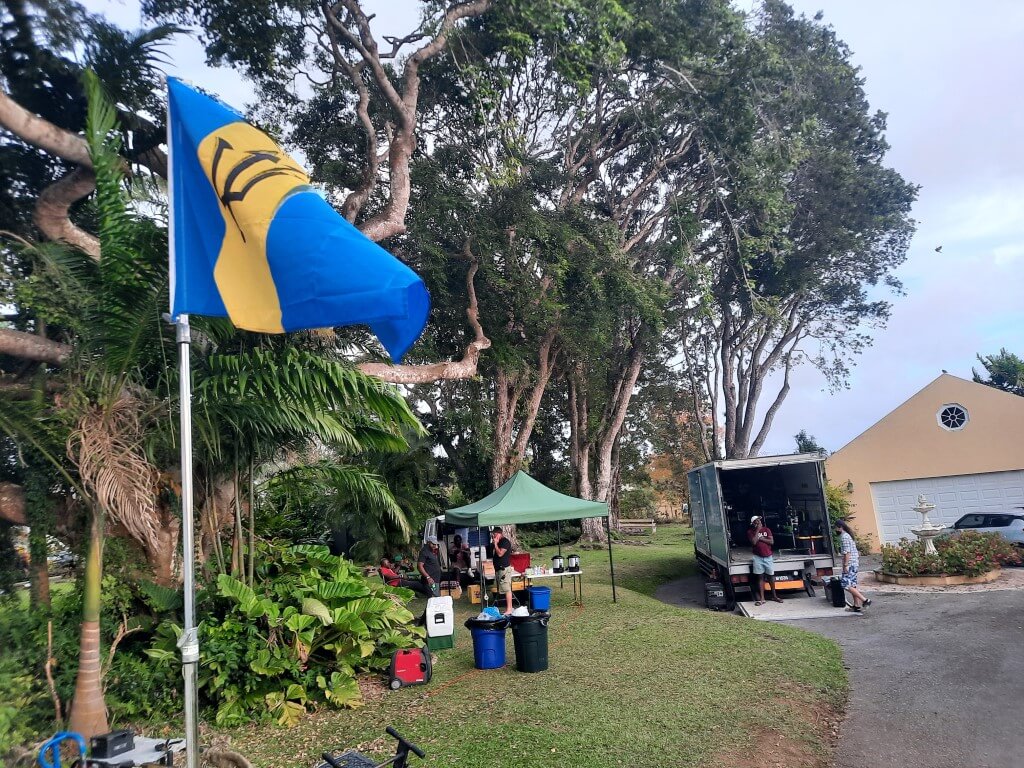Incentives vital to Barbados’ film industry
Every winter we see an influx of travelers coming to our shores, seeking all that the island has to offer: warmth, great food, crystal clear waters, outdoor activities, relaxation and an all-round good time.
Barbados for years has been marketed as an island of friendly people where the rich and famous retreat into anonymity whilst enjoying Bajan hospitality.
As the northern ice melts in March/April, travelers leave our shores and tourism quietly sleeps until July when a fraction of those winter numbers enter the island for the Crop Over Festival.
Barbados for years has been marketed as an island of friendly people where the rich and famous retreat into anonymity whilst enjoying Bajan hospitality.
As the northern ice melts in March/April, travelers leave our shores and tourism quietly sleeps until July when a fraction of those winter numbers enter the island for the Crop Over Festival.
Similar to these visitors, the appeal of a tropical island is the same for film production crews. However, there are some key elements that pique the interests of a producer when thinking of moving a production to a foreign location, especially island destinations.
These elements include accessibility to the island, the skilled personnel and available equipment on island, robust road networks and telecommunication infrastructure, and ease of banking along with the usual suspects of availability of accommodation, transportation and restaurants for the crew coming in.
Barbados ticks all these boxes and May to November creates the ideal time for foreign productions to take place in Barbados, as it is considered the low season for tourism making hotels, transportation, restaurants and locations a bit more accessible.
TV series, movies
It is a time that Barbados capitalise on attracting the long-stay visitor with the understanding that in Barbados the long stay visitor is considered to be one who visits the island for over one month, then the foreign film crew on island for a one and a half to three-month production would fall comfortably into this category. As such we would essentially want to attract TV series and movies (whether made for TV or blockbuster films) as these are the type of productions that would be filming within that time frame. With seven months to play with during the low season we could easily bring two to four productions to the island within that time.
It all seems to be a winning formula, but it is not happening. A quick look at the film location landscape across the world would give rise to two major reasons why Barbados does not see a greater number of foreign productions, especially those with larger budgets. This isn’t happening even though we are sitting on a potentially viable film location with some skilled labour and the potential ability to become a hub for foreign crews in the Eastern Caribbean.
Around the globe filming destinations actively and consistently promote their towns, cities and countries as places for production companies to shoot and in some cases set up shop. This promotion comes in the form of print ads, press releases and spreads in trade magazines; booths and participation at trade shows, interviews with the cast and directors of active productions on location and of course mentions in the credits of such productions.
Every week newsletters from various location publications are sent out worldwide to producers with articles on the advantages of filming in certain countries, on productions being filmed in foreign locations and highlights on certain incentives offered to foreign teams worldwide.
That being said, it is safe to say that promotion plays a major part in who is noticed and who remains invisible in the eyes of the global film community. How will international producers and location managers ever know that a place is open for the film business if it is not advertised?
As we navigated our way through the pandemic and began to see the light at the end of the tunnel the concept of, “Barbados being opened for business” was echoed by the then Minister of Energy, Small Business and Entrepreneurship Kerrie Symmonds, the Director of Investment and Marketing at Invest Barbados, Renatta Mohammed and most recently by Prime Minister Mia Amor Mottley at the inaugural conference for Athletes, Conservationists, Technologists, Artists and Innovators held in May. This collective and purposeful notion is the reason why persons are looking to Barbados as potentially the new frontier for business investment and development.
Thus similar to how the Barbados Tourism Marketing Inc vigorously promotes the island to the holidaymaking tourist market, we need to recognise the things that we have in our favour as a destination location and highlight them the best way we can in order to be in the view of the international producer.
Others way ahead
Additionally, we must attack the proverbial elephant in the room and recognise that countries around the world that are in direct competition with Barbados as it relates to attracting foreign teams to the island are way ahead of us due to our lack of film incentives.
Currently there are no film incentives set up in Barbados to encourage foreign crews to conduct productions on the island. And this majorly prevents our film sector from being truly viable. While the other advantages of filming here may be able to attract the smaller productions, in small pockets here and there, film incentives would be the ticket to attracting larger productions with larger budgets.
(Originally published in 20 June 2022 Business Authority)
Read More





